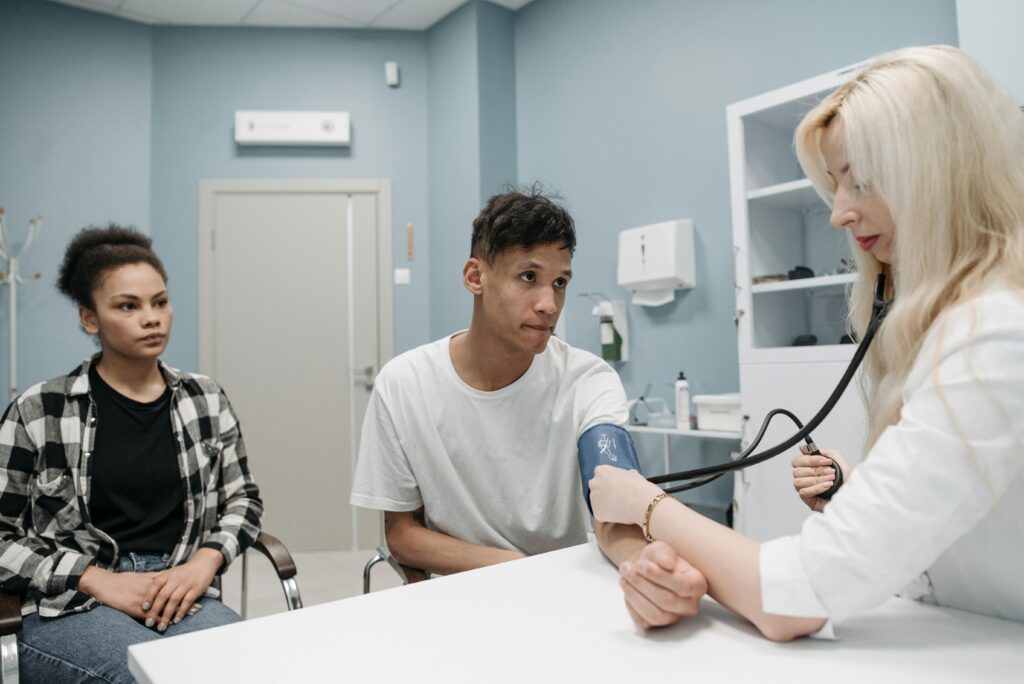Dear friends,
It’s my pleasure to hand over this month’s newsletter greeting to my esteemed colleague, HealthBegins’ Vice President of Medicaid Strategy and Initiatives, Bayley Raiz. Enjoy!
Best,

Rishi Manchanda, MD, MPH.
You may have heard pronouncements in recent months that the healthcare industry’s commitment to health equity is slipping. Or predictions that, as we gain distance from the initial COVID-19 disaster, the buzz about health equity will wane. Or warnings that, as DEI bans trickle down from statehouses into public agencies, equity could be left behind.
Don’t believe them.
The current political uncertainties rightly spark concern. But I’m here to tell you that the pursuit of health equity is here to stay, for several critical reasons. First, because it is right. Second, because it is necessary to sustain our healthcare system and make it serve everyone—even the politically embroiled state of Florida requires managed care organizations (MCOs) to address health-related social needs through its Medicaid contracts as a baseline requirement, recognizing the high financial cost of inequity. And third, because all of us who believe in its importance will work together to protect and promote it.
Equitable practices are also increasingly required by contracts, laws, and accreditation standards. At least 10 states now require licensed health professionals to be trained in cultural humility and other critical skills. CMS has opened new avenues for states to use Medicaid dollars to address social needs, and a growing number of states have written requirements to reduce health disparities into their Medicaid contracts with MCOs. Since 2022, every major healthcare accreditor—from NCQA to URAC to the Joint Commission—has introduced a health equity product. These new assessments and certifications push health plans, providers, and even pharmacy benefit managers to develop health equity infrastructure and address health-related social needs (HRSN).
This is no trend. But it is also not—yet—a guarantee of real impact for equity.
This is where our most critical work as Upstreamists comes in. The question we all must ask ourselves is how to close the gap between intention and impact. There are lots of good intentions across health care right now, bolstered by the requirements and incentives outlined above. But it is possible to check all the boxes and still not see a major difference. So how do we make this essential effort meaningful? How do we take the nitty gritty of granular change and turn it into real transformation?
The answer is that we don’t stop at writing a new policy to meet a requirement. We transform how we operate, partner with communities in new ways, and invest wisely to deliver results. And we do so in a coordinated way, across multiple levels of intervention, to drive our impact upstream.

For a glimpse of what these multi-level strategies can look like in practice, consider what some of HealthBegins’ recent partners have done with our support:
-
Societal level: Medicaid managed care plans have reinvented their approach to meeting reinvestment obligations in their managed Medicaid contracts to ensure that their spending aligns with community needs.
-
Ecosystem level: A Michigan health system used the Upstream Strategy Map to move to an upstream health-equity investment approach, investing more in maternal health equity and linking equity and investment in a new way.
-
System level: Medicaid managed care plans and community-based organizations in California’s PATH Collaborative Planning and Implementation initiative used two Medicaid reimbursement streams, Community Supports and Enhanced Care Management, to nourish new relationships and connect health and social care in a deep and sustainable way.
-
Programs and Care level: The American Medical Association (AMA) hosts a set of free education modules, produced with HealthBegins, to provide essential equity training to care providers at the ground level.
Do not be daunted by the call to scale up. The work can be done, and it can be meaningful. And with the right strategy of partnerships, investments, and community engagement the opportunity to transform our intentions into impact for health equity is as real and present as ever.
Best,
Bayley Raiz
Featured content
Providing Health Equity for Immigrants in a Time of Crisis
This moment presents an opportunity for healthcare leaders to harness the national attention focused on immigrant care to build investments, policies, and protections to improve care for these communities long-term.
HealthBegins Brief: Addressing Climate Health Inequities With The Community Health Needs Assessment
This HealthBegins Policy and Practice Brief invites every healthcare organization to immediately begin addressing the impact of climate change on health at the community level and with community participation.
Immigration Enforcement in Healthcare Settings: How to Prepare and Respond
Many of our healthcare partners are asking how they should prepare for potential ICE encounters on their premises and respond in the interim to concerns among patients and staff. These questions, answers, and resources provide some guidance.



